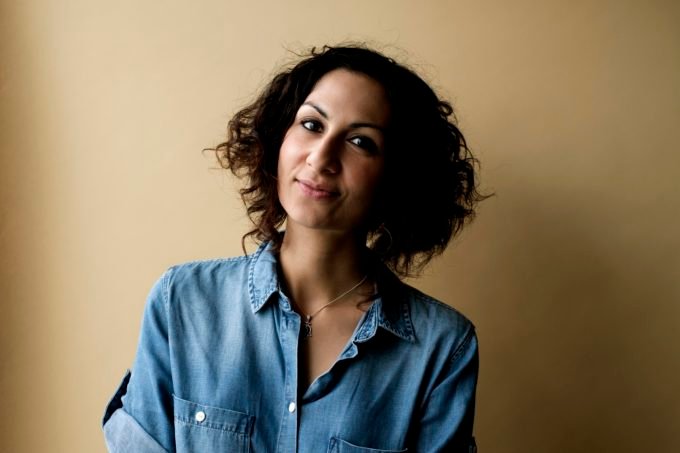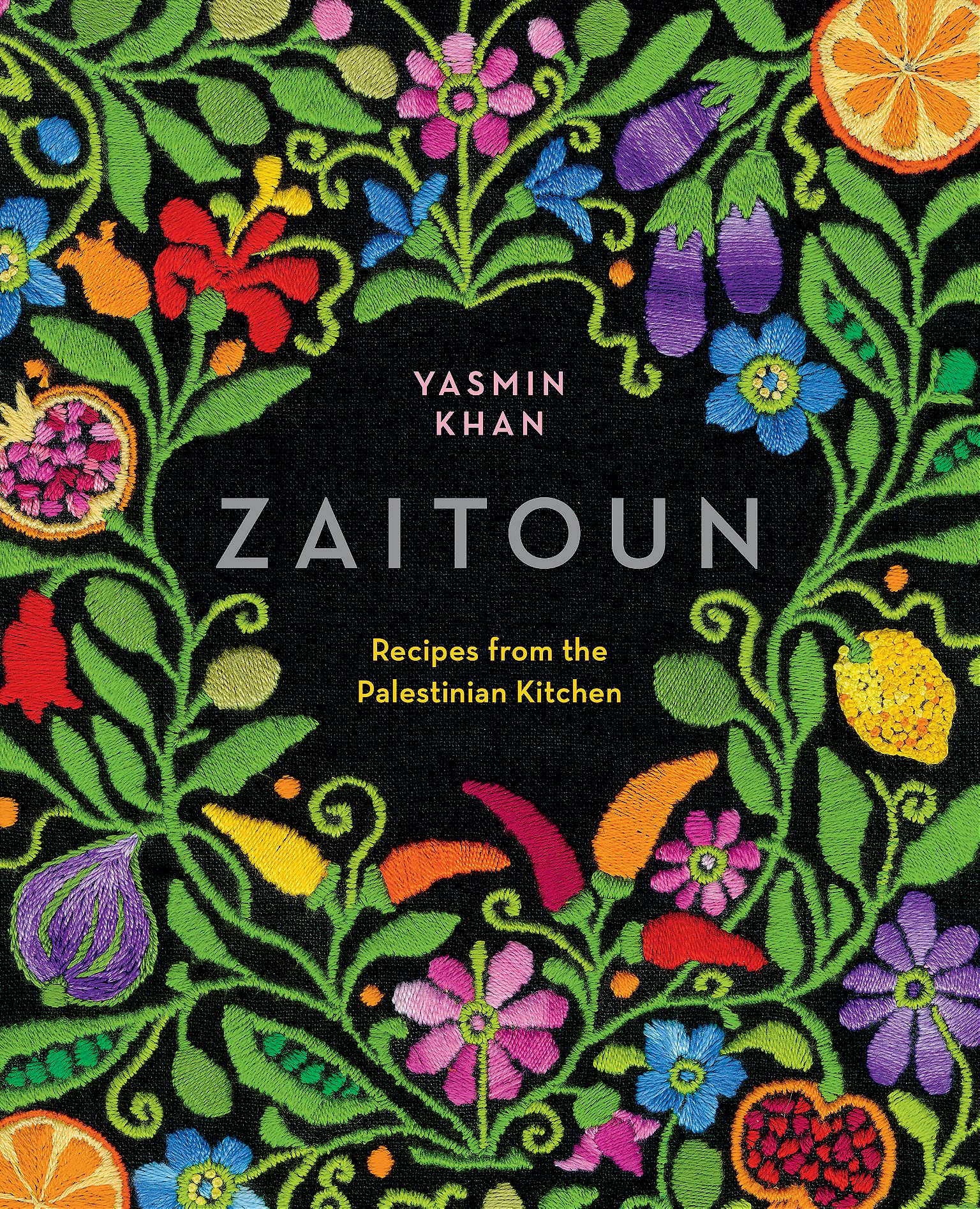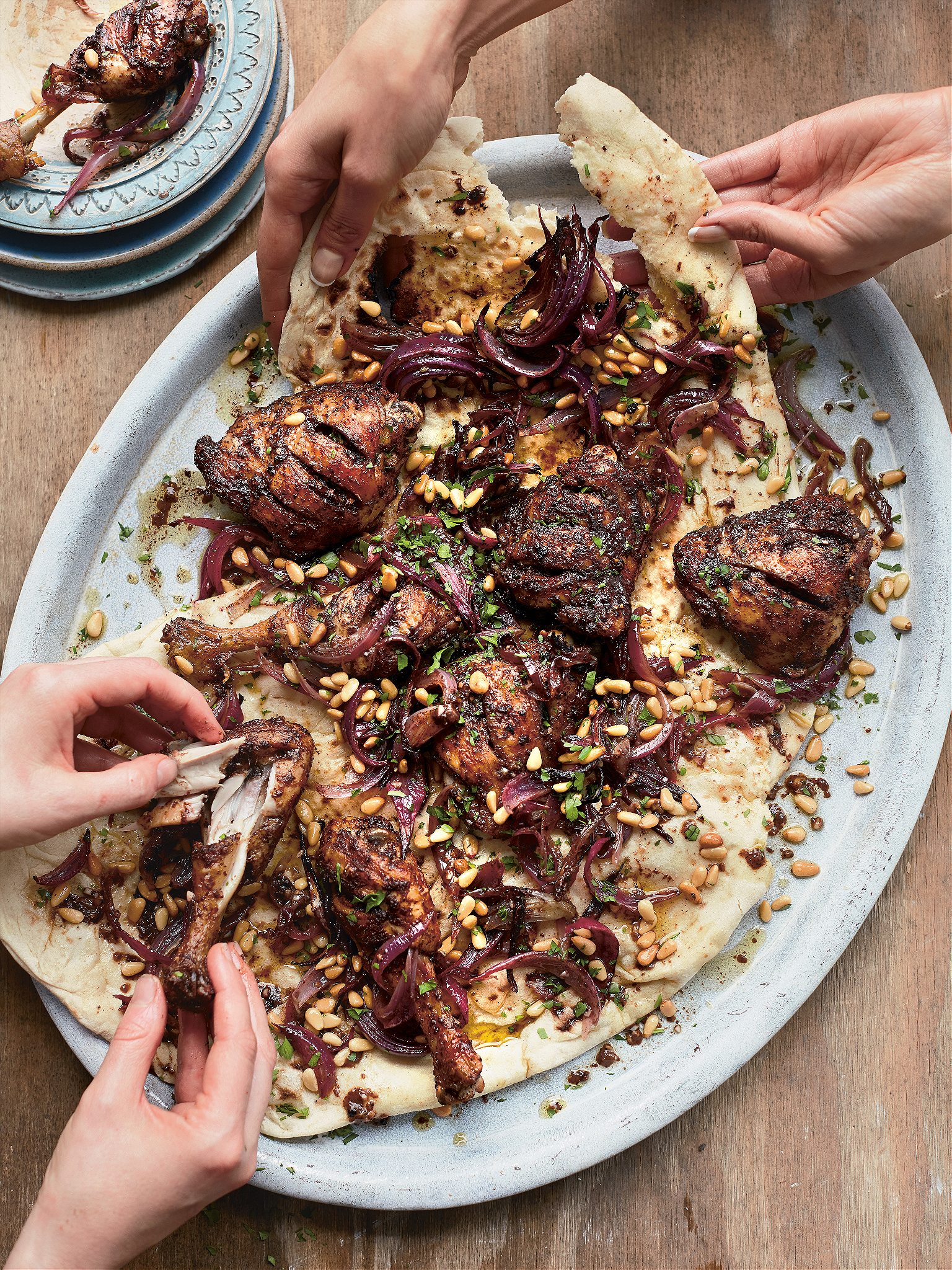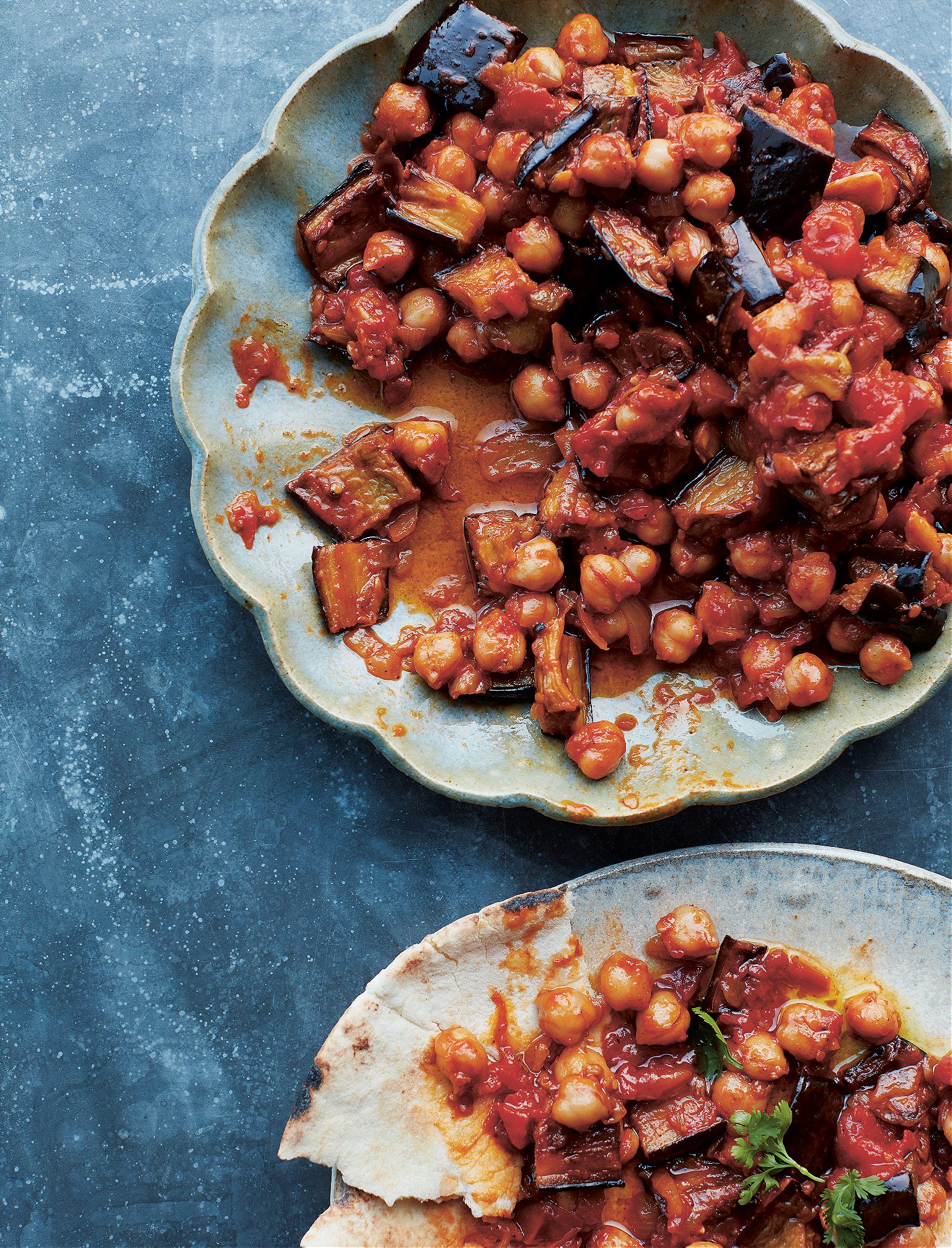
Yasmin Khan Cooks Her Way through Palestine

Writer Yasmin Khan, author of the new cookbook Zaitoun, whips up an Old Monk hot toddy and talks about the joys of Palestinian cooking.
Cook, author, and former human rights campaigner Yasmin Khan seems to have a mission statement very like our own at Roads & Kingdoms. That is, pay attention to what’s on the plate in a way that might spark some change and bring people together (and have a damned good time doing so). There aren’t many books that try to do all of that as gorgeously as Zaitoun, Yasmin’s new book about Palestinian cuisine. We met a while back at the Roads & Kingdoms office in Brooklyn as Yasmin somehow hacked a pretty decent Old Monk hot toddy from our office kitchen. Her book Zaitoun is out this week in the United States, and we’re a better country for it.
Here is an edited and condensed version of Nathan and Yasmin’s conversation. You can listen to the full episode, for free, on Apple Podcasts, Stitcher, Spotify, or wherever you get your podcasts.
Nathan Thornburgh: Yasmin just made two hot toddies out of the office kitchen. She found the bottle of Old Monk rum that Shivani Mehta, R&K’s Director of Brand Partnerships, brought us from Bombay, added whatever spices were lying around Roads & Kingdoms’ neglected kitchen, and came up with this delicious hot toddy.
Yasmin Khan: Thank you. I’m nothing if not resourceful. I do have to say that there was a quarter of a lemon in there that looked like it was almost going nuclear. We’ll see what the after effect of it will be.
Thornburgh: Good. All right, well let’s have this conversation before illness sets in. I can tell by your accent you’re from somewhere in the mid-Atlantic states. Maryland, maybe?
Khan: You know, in recent years, people have been asking me if I’m Australian and I finding it really troubling. No disrespect to our Australian brothers and sisters. But no, I’m from London. Born and bred-ish.
Thornburgh: Would you say you’re English or British?
Khan: I always say British. I never say English.
Thornburgh: Why not?

Khan: Just kind of makes you think of racist people (laughs). You know, English nationalism is something that’s really grown in the last 30 years. Scottish and Welsh nationalism has grown. I think for a lot of people who are, say, like me, second-generation immigrants, the description of British seems to just encompass what we are more. Although it also makes me think of the empire. I don’t know. None of it’s straightforward.
Thornburgh: You’re right. Nothing about it is straightforward.
We are very happy to have you on the show. Roads & Kingdoms was very fortunate to work with you on a series where both you and I got to fly to Asia and eat our faces off in cities that were new to us, or that we were returning to with a lot of love. You’ve been a part of our Banned Counties Dinner series here in New York and in San Francisco. You do a lot of things incredibly well, including being an author. We’re going to dive into your new book, Zaitoun, which a follow-up to your book The Saffron Tales: Recipes from the Persian Kitchen. So, what is Zaitoun about?
Khan: Zaitoun is based on my travels through Israel, the West Bank, and includes recipes from Gaza. It celebrates the Palestinian kitchen.
Thornburgh: How did this idea come about? Your mother’s background is Persian. Your father’s background is Pakistani. You don’t have a connection necessarily to Palestine, and yet you decided to write a book about their cuisine. Why?
Khan: I’ve kind of been involved in the Israel/Palestine story for quite a long time. About 10 years ago, I was working for a human rights charity in London, and my brief was conflict and human rights in the Middle East. I was very busy. There were no human rights in the Middle East. And one of one of my areas was Israel/Palestine. So, the first time I went over about 10 years ago. So, I had already traveled to the region a few times and when I was looking for an idea for my second book… I’m very passionate about showing people alternatives to the kind of contemporary or the mainstream narrative that’s depicted of the Middle East. I’m also passionate about trying to humanize the people there.
The last 15 years have seen the whole region explode in just horror, really. But beneath those horror stories or just stories of people and stories of human connection. If we want to change the world, we just have to start telling different stories. Food is a brilliant way to tell a story and Palestinian food is damn good.

Thornburgh: I think both of us have staked our professional lives on that concept. How did you organize your plans going back to talk about kitchens after having been there as an activist and a human rights campaigner? Did you call up the people you knew and say, “what’s for dinner?”
Khan: I take a quite relaxed, laissez-faire approach to research. Part of planning the research was just picking a few places to go, finding a photographer who I connected with, both in terms of our values and our mission. I connected with some old friends. A lot of it was just like, okay, we’re going to be in a place for a few days. Let’s just follow our noses. It was all a kind of by the seat of your pants as we say in the UK.
You can only plan so much anyway. People there can only plan so much. Palestinians have no control over their daily lives in terms of their ability to go to school or to go to work. It’s completely in the hands of whatever is happening at the checkpoint.
But the vast majority of Palestinians that I interviewed and met with for this book, as it was in Iran, were overwhelmingly supportive and excited about the opportunity to present their culture through a different prism. The feeling was, how often does that happen? Very rarely. The news isn’t great coming out of that region. And especially with Palestine, it is a culture that is being eradicated, therefore anything that tries to preserve a bit of history has got an important part to play. So, you know, I found a lot of enthusiasm for the book.
Thornburgh: What areas did you travel to for the book?
Khan: I traveled through Israel and the West Bank because there are Palestinians living throughout. I do make a point kind of early on in the book that Israeli voices aren’t featured, but not out of any sense of wanting to exclude the Israeli experience. I have worked with Israeli NGOs and peace groups. I’ve stayed with Israeli friends in Tel Aviv. I’ve enjoyed the food of great Israeli chefs in London and New York, but this book, specifically, is about space for Palestinian voices to come out. Especially in the States, in the last few years, we’ve had this huge surge of interest in Israeli food. A lot of it, I think, originates from that region that some people refer to as Palestine. So, I think it’s just about trying to balance it out.
Thornburgh: This gets to the hummus wars and the incredible divisions that people can have over what is essentially the same food.
Khan: It comes down to fear. A lot of people in that region are carrying trauma. If you take trauma, mix it with geopolitics and militarism and then media and government brainwashing, you get communities just totally strangled by fear.

Thornburgh: So, how did you organize this book? What will people find when they open Zaitoun?
Khan: A series of recipes that track my journey through Israel, and the West Bank, and (via remote interview because of the blockade) Gaza, alongside a bunch of travel essays that share the stories of the people I met and cooked with. Palestinian food is split into three distinct types. So the food of the north of Israel is very vegetable based. Then as you move down into the West Bank—I was there for the olive harvest. The word zaitoun means “olive” in Arabic, and olives are the main crop of Palestine. I think olives everywhere are a universal symbol of peace, but in Palestine, they also represent the Palestinians’ connection to the land. Palestinian olive oil is incredible. It’s very peppery. I’d compare it to Greek olive oil. It’s got that bitterness to it and it’s very pungent. The olive harvest takes place in October and November and every Palestinian family has olive trees and during the olive harvest, every Friday, families will go off to the field and pick olives. and it’s just like the huge kind of family celebration of everyone going off to the field, you know, picking olives.
I also went to Jerusalem, which is one of the most intense and strange places on Earth. There it was all about, obviously dipping into some of the classics: the falafels, the hummus, the kabobs. I also went to Bethlehem, which is just a beautiful place. Just outside of Bethlehem, in the village of Taybeh, I visited the Middle East’s first microbrewery, which was incredible. They have this great selection of pale ales, dark ales, white beers. They have an Oktoberfest every September, confusingly.
Thornburgh: October comes early in the Middle East.
Khan: Yes it does! So, I guess the book tells the stories of all of these places, including Gaza. I couldn’t travel there because it’s blockaded and has been for 11 years. and nothing can get in or out. But I did those interviews with either Gazans in the diaspora or over Skype.
Thornburgh: I haven’t been to Israel in a while, but the experience of seeing the incredible diversity over this very small geographic area is something that just blows my mind. I mean Galilee is something very distinct from the coast, from the Dead Sea, from Jerusalem.
I was thinking about this, this morning. I’m going to date this podcast episode, but it’s a week after Israel opened fire on protests on the Gaza border and murdered a photojournalist. I guess the question for you would be as what, you know, what do you think people should do when with all this conflict we’re seeing? Maybe Zaitoun as a catalyst for something… How do you start to envision something kinder?
Khan: First of all, I think that the situation in Gaza is one that’s pretty much fallen off the map. That’s a real tragedy and I think history is going to look back and really judge us all for have living lived through this time where 2 million people are being held in an open-air prison. Some of my most moving interviews were about Gaza.
I think that’s one of the issues that stops a lot of people engaging on the issue of Israel and Palestine because it almost seems so overwhelmingly awful. It’s like what can you do? But actually Palestinian civil society for the last 10 years has been really clear. And I think that in the same way that at different points in history, the people in the world have supported social movements in places like South Africa, it’s quite important to listen to what the people who are being oppressed asking for. There is a big movement to try and do two things. One: It’s really important to hold the institutions that are causing these oppressive acts to account. So that means in terms of our governments in the UK, we have huge campaigns to stop selling arms to Israel, which the UK does. We have a huge campaign in supermarkets to stop British supermarket from selling goods that are sold in settlements because these illegal settlements in the West Bank are now becoming economic entities.
So it’s really about kind of targeting in a very grassroots way, the infrastructure of the occupation. Alongside that, I think that anywhere where I can I try and just talk about the Palestinians I’ve met and I really encourage everyone to go is part of it. One of the main problems I think we have is the fact that the whole area is demonized to an extent that people don’t know what’s happening.
I genuinely believe and I feel quite passionately about this—it’s not just because of the hot toddies—I genuinely believe that pretty much most of the world’s problems come from the act of dehumanizing another person. And if all this book can do is in some small way offer a human connection to a place or a people that are more commonly associated with terror, then I’ll be happy.
You can listen to the full episode, for free, on Apple Podcasts, Stitcher, Spotify, or wherever you get your podcasts.
Episode 26 Show Notes:
Yasmin’s gorgeous cookbooks
Zaitoun: Recipes and Stories from the Palestinian Kitchen
The Saffron Tales: Recipes from the Persian Kitchen
The Roads & Kingdoms Perfect Dish series with Anthony Bourdain and Yasmin Khan:
Perfect Dish Okinawa
Perfect Dish Tokyo
From the closing notes
Midnight in Chernobyl: The Story of the World’s Greatest Nuclear Disaster by Adam Higginbotham BUY THIS BOOK TOO. It’s excellent
Up Next
Illustrator Edel Rodriguez is Stress‑Testing Democracy
A Life in the Commune with Tanja Fox
The oldest squatter’s commune in the world, Christiania, is under threat from both the narcotics trade and mass tourism. Tanja Fox isn’t afraid.
Jennifer Ching is Dismantling the System
How do you tackle poverty in a city like New York City? Jennifer Ching of the North Star Fund has some ideas.
Beyond War with Yuri Kozyrev
Drinking coffee in Moscow with one of the great conflict photographers of our time.
Instant coffee in Galway with Matt Orlando
Nathan Thornburgh and star chef Matt Orlando of Amass Restaurant drink lousy instant coffee in Galway and talk about running a true zero-waste kitchen in the age of greenwashing.






